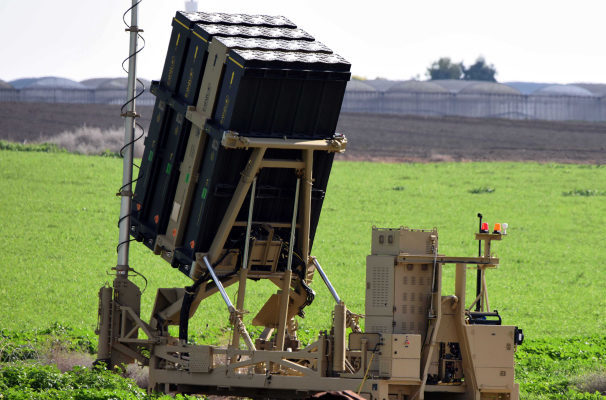Israeli’s honorary consul for western Ukraine says Jerusalem is reluctant to offer arms to Kyiv because Russia could capture the weapons, reveal their secrets to Iran.
By Ben Cohen, The Algemeiner
Concern that the secrets of Israel’s military technology could be captured by Russian forces in Ukraine, rather than fear of a Russian military reprisal, is what is driving the country’s reluctance to supply the democratic government in Kyiv with an air defense system, Israel’s honorary consul for western Ukraine said on Thursday, as the world prepared to mark the first anniversary of the Russian invasion.
In an article for the Pravda Ukraine news outlet, Oleg Vyshnyakov — a businessman who has served as Israel’s honorary consul in the western city of Lviv since 2014 — argued that while Israel was drawing closer to Ukraine in diplomatic terms, military assistance may still be step too far for Jerusalem.
“Does this mean that Israel will share its air defense assets? I think no, and the issue here is not the fear of deteriorating relations with Moscow, but the fact that in the event of the capture of these systems by the Russian army, secret Israeli know-how will definitely fall into the hands of the Iranians,” Vyshnyakov wrote. Russia and Iran have fostered a close military alliance over the last year.
Vyshnyakov pointed to the recent visits to Ukraine of Israel’s foreign minister and two prominent members of the Knesset as evidence that Jerusalem and Kyiv are drawing closer together. Commenting on the commitments made by Foreign Minister Eli Cohen last week, Vyshnyakov highlighted Israel’s support for Ukrainian President Volodymyr Zelensky’s 10-point peace plan, its agreement to provide Kyiv with $200 million in credit guarantees for health and infrastructure projects, and its intention to supply Ukraine with an early warning system to ward off Russian aerial attacks within the next six months. He also pointed to the statement of visiting Knesset members Yuli Edelstein and Ze’ev Elkin expressing “support for practical cooperation between Israel and Ukraine in the field of air and missile defense, as well as in the areas of defense cooperation.”
While he did not believe that Israel would follow through on the military side, “I have no doubts that there will be support in other issues,” Vyshnyakov wrote.
Separately, there has been growing speculation in Kyiv that Israeli Prime Minister Benjamin Netanyahu will join the growing list of western leaders, among them President Joe Biden, who have visited Kyiv in recent weeks.
While no date has been set, Israeli and Ukrainian officials both confirmed that the prospect of a visit was being explored.
As Ukraine marked the eve of the first anniversary of the Russian invasion on Thursday, Zelensky vowed to “hold to account all those who brought this evil, this war to our land.”
In a special address, the Ukrainian leader declared that “Russia has chosen the path of the murderer. The path of the terrorist. The path of the torturer. The path of the looter. This is the state choice of Russia, and there will be state responsibility for the terror committed.”
Separately, Russian President Vladimir Putin again ratcheted up his bellicose rhetoric, pledging in a Fatherland Day speech — commemorating Russia’s wartime dead — to further develop Moscow’s nuclear arsenal.
“Our troops are heroically fighting the neo-Nazism that has taken root in Ukraine, protecting our people in our historical lands, and are fighting courageously and heroically,” Putin claimed in his video address.




